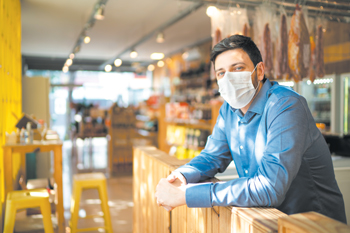 During and after the Industrial Revolution, mass-production manufacturing was birthed and nurtured to provide the large quantities of increasingly complex devices and machines required by a burgeoning population and mechanized society.
During and after the Industrial Revolution, mass-production manufacturing was birthed and nurtured to provide the large quantities of increasingly complex devices and machines required by a burgeoning population and mechanized society.
Techniques of scale were developed to harness the investment of money, materials and personnel to achieve the goal of mass-producing effectively in cost and time.
As successful as this revolution was in meeting the new demands of society, industrialization required a shift from the individualized output of artisans to the standardized output of factories.
It also necessitated the construction of concentrated plants to the detriment of distributed cottages — two outcomes that are ill-suited to the adaptability required during sudden and massive crises, such as the unpredicted onslaught of COVID-19.
Enter 3D printing. Three years ago, I realized the potential of 3D printing to recapture the lost benefits of artisanship and cottage industry: the ability to make just what you need, when you need it and where you need it.
When global transportation is impeded, all the high-tech factories of the world are of little value, and citizens must return to the time-honored traditions of local production.
3D printing, while still in its natal stages, provides a pathway to local production-on-demand better and faster than ever before.
Fortunately, Fayetteville Technical Community College’s Simulation and Game Development department already had a functioning 3D printing lab when COVID-19 first threatened society and the modern supply chain that underpins it.
As everyone is painfully aware, an unprecedented demand for protective face masks in the pandemic’s wake quickly led to such a complete dearth of this relatively simple piece of gear that the entire medical response to COVID-19 was imperiled.
While anyone can fashion a mask of basic materials, medical personnel require a more standardized and effective device.
The members of my department were quick to respond and create, and the FTCC administration quick to endorse, a start-up mask production facility utilizing the equipment of our 3D printing lab.
What these dedicated faculty accomplished with no preparation is impressive.
We began reading about attempts to print PPE for front-line medical workers and went through dozens of designs and assembly routines, partnering with the Fayetteville Police Department and Cape Fear Valley Medical Center to ensure the most effective design possible.
Eventually, we came up with something that was quick to print, effective at preventing viral penetration and doable on our improvised assembly line.
We assembled approximately 700 masks and face shield supports, along with a thousand strap holders to relieve ear strain from constant mask wear.
We were able to get each mask to print in just over an hour. We had 10 printers printing 24/7. We peaked at around 75 masks per day, plus other items such as inserts, strap holders and
face shields.
In the end, we donated printed gear to Cape Fear Valley Medical Center, local essential workers, and students, faculty and staff on campus.
The masks can theoretically be worn indefinitely, as long as they are properly sanitized after usage.
Learn more about the exciting Simulation and Game Development program at FTCC at faytechcc.edu. Fall eight-week classes begin Oct.15.
3D printing face masks for COVID-19 response
- Details
- Written by Stephen W. Umland

 How to resolve AdBlock issue?
How to resolve AdBlock issue? 








